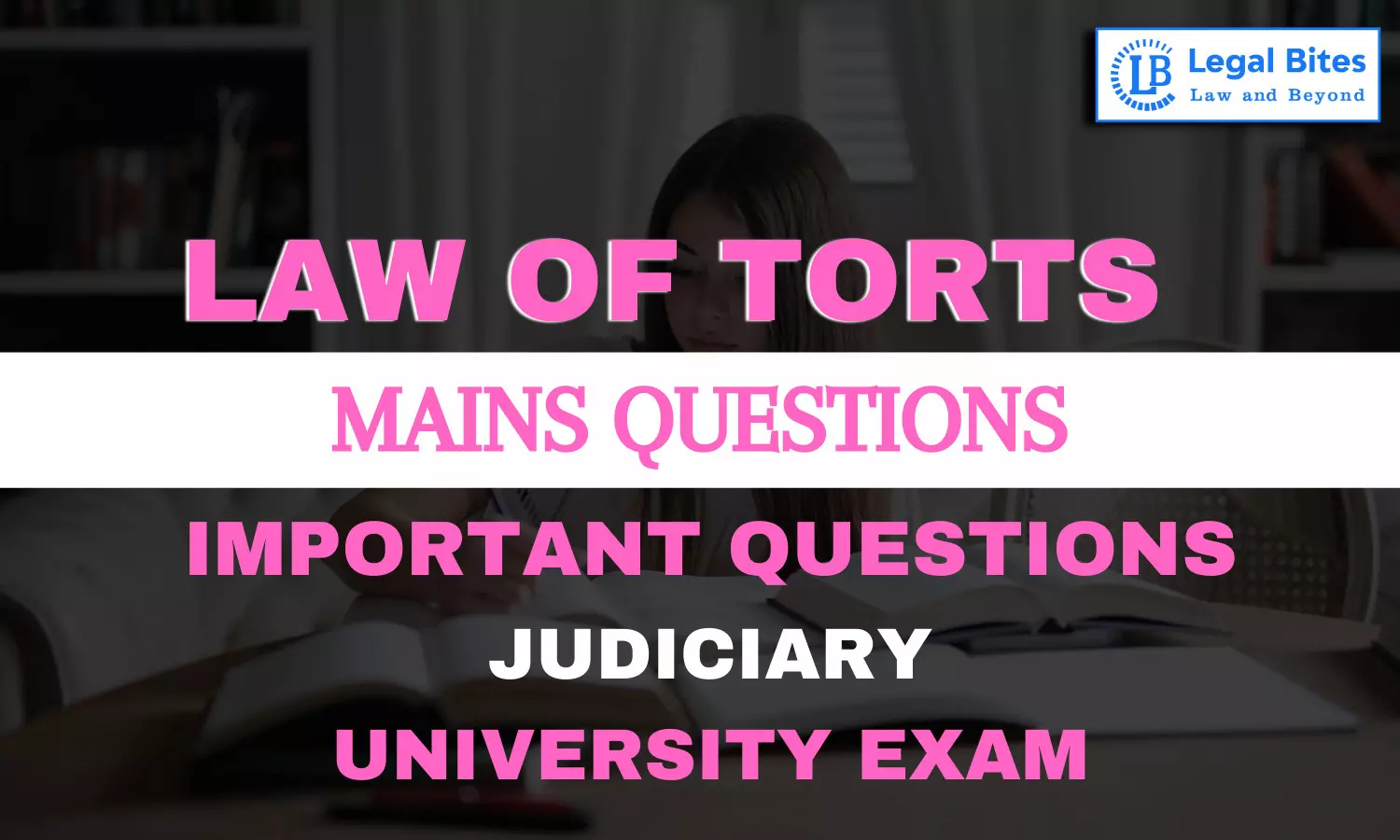Law of Torts Mains Question Answer Series 4: Important Questions for Judiciary Exams | Part – IV
Legal Bites presents the Law of Torts Important Question-Answer Series. The questions listed here will help students study for various Competitive and University Exams.

Legal Bites presents the Law of Torts Important Question-Answer Series. The questions listed here will help students study for various Competitive and University Exams. Candidates can use Legal Bites' list of questions to help them determine the most important and often asked questions and practice their aptitude and knowledge.
Answering questions is a continuous process that is an inevitable component of any test preparation, as we all know. A well-written response displays not just a candidate's knowledge but also his or her ability to tailor the content to the question's requirements.
It is vital to prepare for this exam to pass it thoroughly. To attain mastery over the subjects studied, applicants only need to keep practising these questions in the months coming up to the examinations. Following it, the candidate's confidence level, as well as their scores, will vastly improve.
Law of Torts Mains Question Answer Series 4: Important Questions for Judiciary Exams | Part – IV
Question 1:
What do you understand by the expression `Nuisance'? What are the kinds of nuisance?
Question 2:
Define and explain 'false imprisonment'.
Question 3:
Describe the various remedies available to an aggrieved party in tort. [BJS 1979]
Question 4:
"A statement made in performance of duty is privileged." In light of this statement, critically examine the tort of defamation. [BJS 2018]
Question 5:
"Necessity knows no law". Comment. [BJS 2018]
Question 6:
Define malicious prosecution. What are its essential ingredients? What must a plaintiff prove for getting success in case of a suit for malicious prosecution? Can a suit of malicious prosecution be filed against the corporation also, if yes, in which circumstances? [UPJS 2013]
Question 7:
How far lack of care is a relevant factor in determining liability under an action of nuisance? [UPJS 1999]
Question 8:
Explain the importance of the case Donoghue v. Stevenson in making extension of the tort of negligence. [UPJS 1985]
Question 9:
Give instances of cases in which exemplary damages may be awarded.
